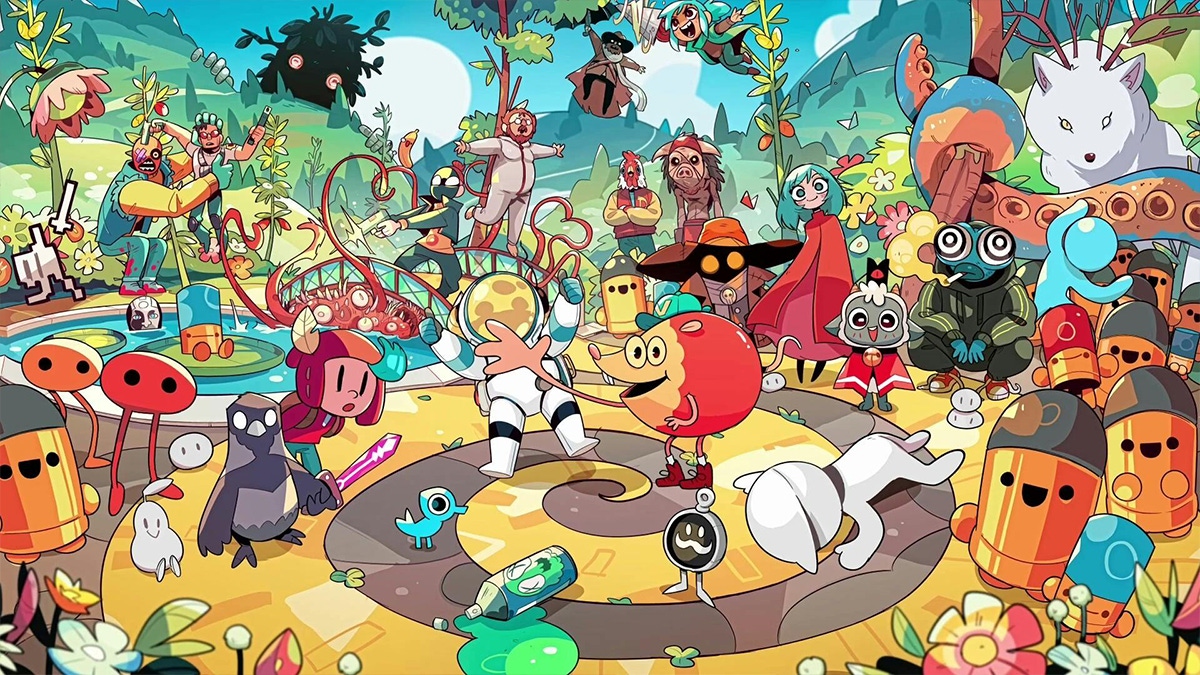Trending
Opinion: How will Project 2025 impact game developers?
The Heritage Foundation's manifesto for the possible next administration could do great harm to many, including large portions of the game development community.

Devolver Digital chief marketing officer and co-founder Nigel Lowrie has some advice for developers looking to cut through the noise in a crowded market: let the people play.
The indie publisher has developed a knack for unearthing offbeat gems over the years. Cult of the Lamb, Inscryption, Enter the Gungeon, Pepper Grinder, Gris. The list feels endless. But what has the Austin-based publisher learned about marketing after helping a litany of weird and wonderful titles find success?
Given his job title, Lowrie feels like the ideal person to ask. So we did. He explains that Devolver "has always been pretty efficient" in getting the most out of marketing budgets, and says that begins by sitting down with the developers themselves to truly understand what they're offering.
"You have to understand what's really possible with the game and who might be interested. Knowing that the audience for Cult of the Lamb is substantially larger, potentially, than Children of the Sun, right? And [making sure] the developer knows that. We know this. And we have to work around that. So we try to put together efforts in marketing that cater to size," says Lowrie.
He explains Devolver has cultivated a team that can handle a lot of marketing beats in-house. "We don't use a lot of agencies for idea generation," he says, noting that trailers are often produced inside the company's hallowed halls. That doesn't mean Devolver won't hire external talent when needed—it might, for instance, reach out to external creators for key art or bespoke animated trailers—but the broad remit is to do as much as possible internally.
Lowrie explains Devolver covers marketing costs, which is handy for developers who've signed with the publisher, but adds that's why it's important to be smart and spend carefully.
"We don't go too wild with paid ads. Marketing starts for us with the games you sign. A lot of the [projects] you could argue, to a extent, can sell themselves if they're really good. We're just trying to get it further than it could on its own. [...] If a game itself isn't engaging or exciting or noteworthy it's going to be very difficult.
"Then we try to efficiently and smartly put together things that get it in people's hands. I'm not going to say we're the smart ones here. There are a lot of opportunities that have been created through the growth of the industry or the direction we've taken as a culture, like Steam Next Fest, where there's no hard cost.
"Yes, it takes time for the developer to make a demo, but it's not going to a PAX or an E3. You can get that game to every audience—consumers, influencers, media—with no cost on a wide scale and global scale."
Lowrie reiterates that letting players hop behind the proverbial wheel is the "most important thing you could do." He also reveals that Devolver doesn't pay for spots in showcases. The idea for the company is to engage consumers more organically. If someone wants to feature or stream or promote a Devolver title because they think it looks interesting, then great—but letting people go hands-on remains one of the best ways of selling your vision early doors.
At this point, we ask Lowrie if developers should still be looking to bring their titles to subscription services like Xbox Game Pass as part of their broader strategy. In its latest fiscal report, Devolver stated it has taken a more "calculated approach" to courting subscription platforms because its titles were often being undervalued. Although Lowrie says Devolver will continue to engage with those platforms, he suggests we shouldn't think of them as the promised land.
"We don't assess games and their viability on a commercial level based on their ability to get on subscription services. We cannot rely on that. That is based on somebody else's taste within the companies we're talking about, and other variables that aren't really in our control," he continues.
"Those are gravy but they're not planned for. We don't go into a project saying 'let's sign this because we think it'll do well on a subscription service.' It needs to be able to do well on its own."
He says that if a platform holder approaches Devolver to discuss a subscription deal, the company is absolutely prepared to listen, but you cannot make those deals "part of your forecast." Games, he states, need to be able to carry their own weight. "If you go into [a project] thinking this has to be on a subscription service or it's not viable. That's a dangerous place to be."
Read more about:
FeaturesYou May Also Like